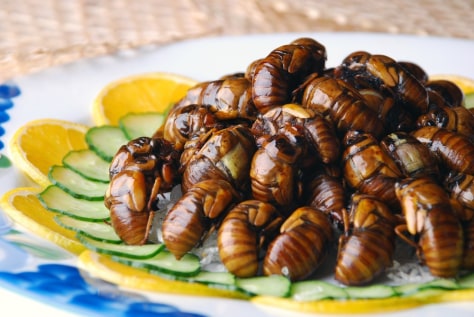Something I feel that many green enthusiasts often overlook on their crusade against greedy oil companies and people who don’t recycle is the impact of our food on the environment. So as I sat there in a restaurant eating delicious dishes made from all sorts of meats (beef, pork, chicken, fish, shellfish) for Chinese New Year with my family, it dawned on me that I ought to know how all of this food, particularly animal protein, arrived on the dinner table!
It didn’t take long for me to dig up some alarming statistics on how unsustainable meat is:
- More than a third of all raw materials and fossil fuels consumed in the United States are used in animal production.
- The world’s cattle alone consume a quantity of food equal to the caloric needs of 8.7 billion people—more than the entire human population on Earth.
- Animal agriculture is responsible for 18% of the total release of greenhouse gases world-wide, which is more than all the cars, trucks, planes, and ships in the world combined.
That last fact in particular stood out to me – why are we even bothering with electric cars?! Jokes aside, the point of this blog post is not just to scare you, but to raise awareness of the issue of increasing global meat consumption. An interesting solution I’ve come across is the consumption of insects as a protein replacement for traditional meats.

How gourmet.
Apparently insects require far less resources to produce protein mass than livestock and also produce far less greenhouse gases than livestock. It’s a win-win situation! Or is it?
As we’ve learned in class, a product must be great first, green second if it wants to gain any momentum in the Western market. As it stands now, eating insects for dinner is the LAST thing somebody wants to do after a long day at the office, even if it IS more sustainable. From a marketing perspective, do you think there’s a way we can work around this? How can we make insects “great” as a food product?
References:
http://www.onegreenplanet.org/animalsandnature/facts-on-animal-farming-and-the-environment/
